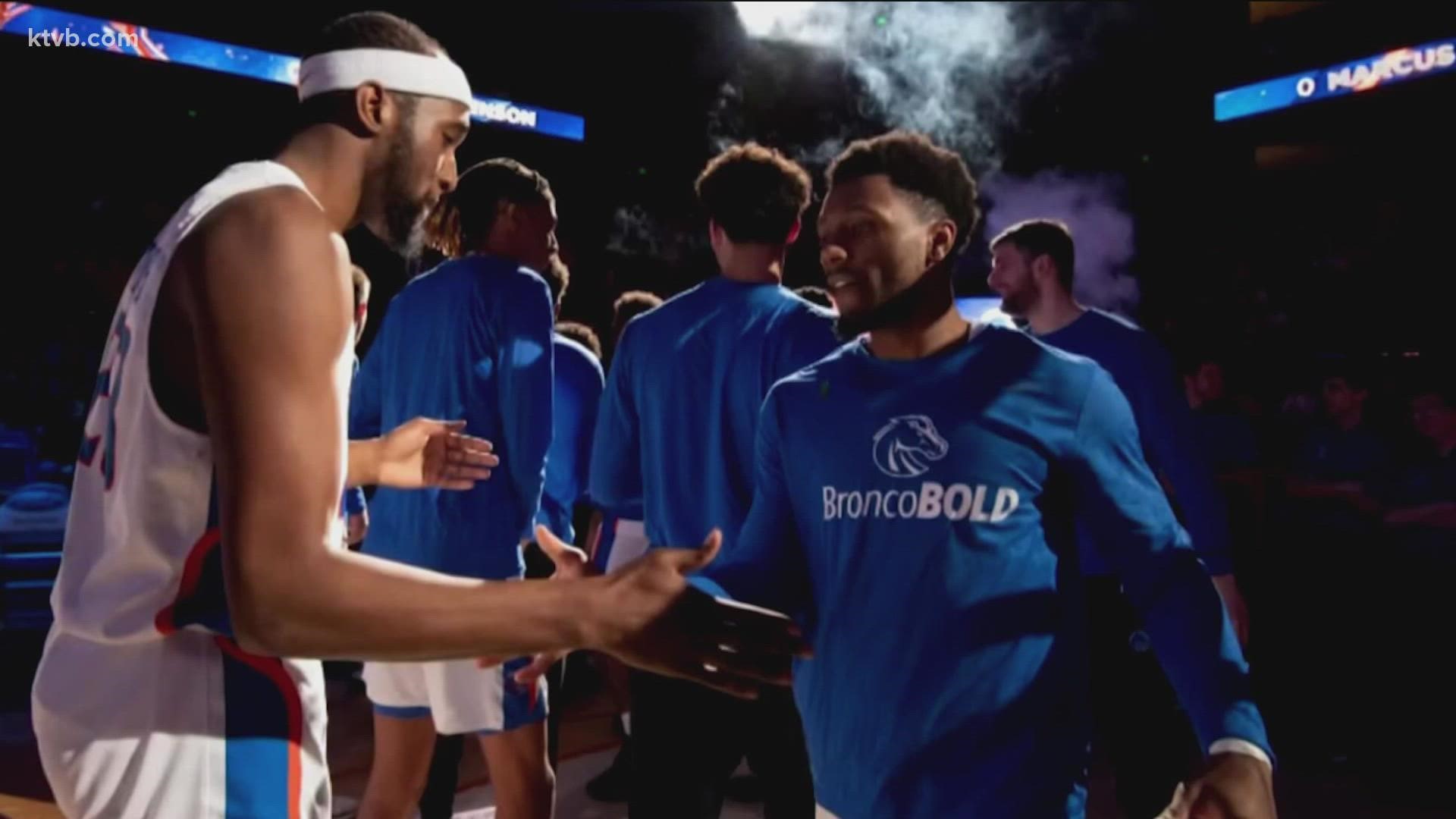BOISE, Idaho — In recent months, there’s been several high-profile stories about American college athletes taking their own lives.
It is tragic and devastating to read these stories, but we cannot ignore the core issue: mental health. Mental health is an important thing for all of us to be talking about.
In light of recent events, there is renewed attention and conversations about mental health resources for student-athletes.
Those students are just that, students.
They take on high-pressure roles in athletics, while also balancing everything else that comes with the college experience.
Talking about mental health with college aged students can be tough, but that conversation is front and center at Boise State, and has been for several years.
The student led program, BroncoBOLD, launched in 2019. It's designed to spotlight mental health among athletes, coaches, and staff within Boise State Athletics.
The program is led in-part by Boise State Athletics' Director of Athletic Performance and Psychology, Stephanie Donaldson. BroncoBOLD focuses on three major areas of the mental health conversation: reducing stigma, raising awareness and cultivating resilience.
To highlight the important conversations at Boise State University, KTVB sat down with Donaldson to talk about those tough conversations, and how Boise State Athletics is addressing mental health for their athletes and in the community in general.
“Bronco Bold is our student athlete Initiative for mental health and suicide awareness and prevention," Donaldson said. "It's truly a student-athlete led initiative and it's based on education, prevention, and building awareness on our campus and also our community and just really opening the conversation about mental health and creating an open narrative, where we can talk freely and really normalize those conversations."
Working with student-athletes is a full-circle situation for Donaldson. She knows the pressure of being a student-athlete.
“I was a student-athlete in college. I swam a very long time ago and I definitely struggle with my mental health, but it was a time that we didn't talk about it," Donaldson said. "I fortunately, at the time, I thought it was unfortunate, but I had a coach who made me go to counseling and he said, you got to go.
"So, I begrudgingly went and I thought at the first part of it, this isn't working. I don't like this, but eventually I found someone who I really it was life changing. It made a huge difference in my life and so that's the reason why I do what I do today, because for me, it was a life changing experience."
Conversations around mental health and suicide can be very tough, but Donaldson said she thinks conversations are certainly more accessible than in years past.
“I think I've noticed just a huge shift generationally and these are student-athletes that want to talk about it and they want to be open about it," Donaldson said. "They want to create this environment that is, we're able to have these conversations and so I think that's amazing and really, it provides a lot of hope for the future moving forward. While they are difficult conversations to have, if we start together as a collective whole, we really can change."
Renewed attention on mental health is a great development. Donaldson said COVID helped put that conversation directly in the mainstream.
“I think it has, we've been moving forward, it has become, I don't know if easier is the right word to say, but it has become more prevalent those conversations, especially following COVID," Donaldson said. "I think everyone in the world realized, 'oh, mental health is really a thing that I've got to pay attention to.' I think with that, it also opened the doors to start more freely having the conversations.
"We see athletes at high levels speaking out and speaking out on their own mental health and the importance of seeing mental health just the same as physical health."
Main stream attention on athlete mental health has been highlighted by bold decisions by athletes like Olympian Simon Biles and tennis star Naomi Osaka, who prioritized their own well-being over sporting events on the biggest stage. Donaldson says that, too, helps the conversation.
“I think it really helps. Not just the student-athlete being able to talk about it, but someone maybe who's never even been involved as an athlete in athletics," Donaldson said. "You see someone who is at the top of their sport, the elite of the elite, who we think of as someone being so strong physically and mentally and if they can talk about it openly and then they can express, 'hey, I've struggled there,' it creates a lot of relatable ability there and it helps other people to be vulnerable and to say, 'hey, if they can be struggling, then it's okay if I'm struggling to.'"
If you or someone you know needs help, there are community resources out there and people who want to help.
The Idaho crisis and suicide hotline phone number is (800) 273-8255, and the text line is (208) 398-4357. Those needing to talk to someone can also use the chat portal on the hotline's website.
Join 'The 208' conversation:
- Text us at (208) 321-5614
- E-mail us at the208@ktvb.com
- Join our The 208 Facebook group: https://www.facebook.com/groups/the208KTVB/
- Follow us on Twitter: @the208KTVB or tweet #the208 and #SoIdaho
- Follow us on Instagram: @the208KTVB
- Bookmark our landing page: /the-208
- Still reading this list? We're on YouTube, too:

